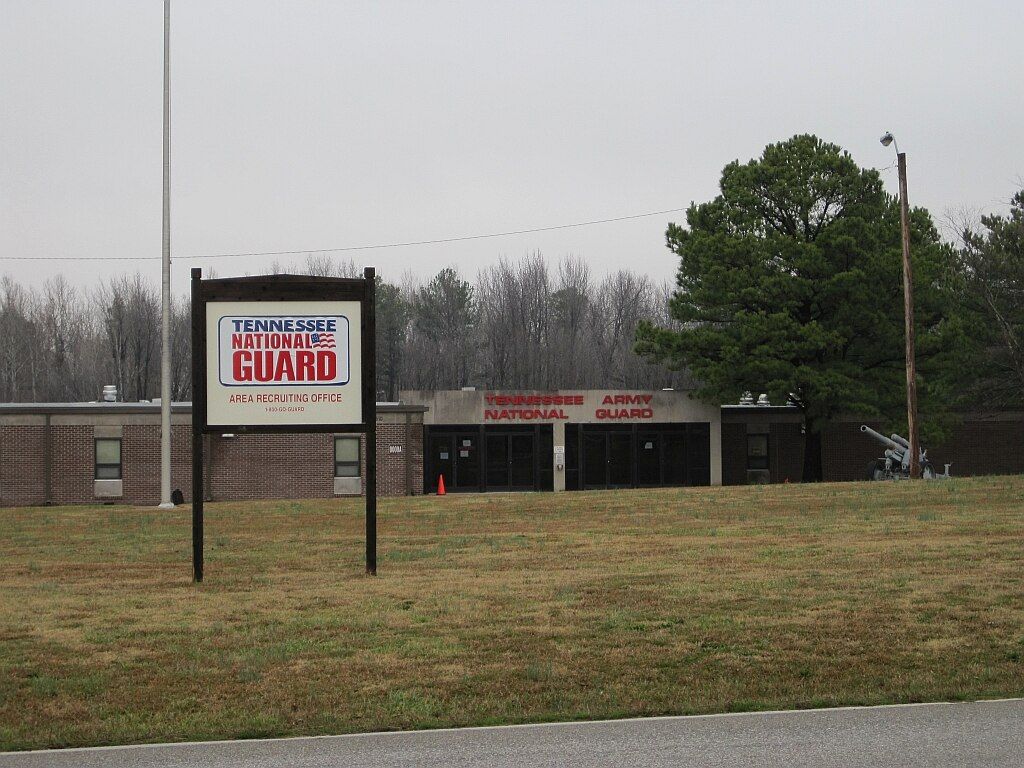U.S. Political Polarization Raises Global Stability Concerns

Photo credit: Thomas R Machnitzki (thomasmachnitzki.com)
Intelligence Summary
On September 15, 2025, U.S. President Donald Trump signed an executive order deploying the National Guard to Memphis, Tennessee, as part of a broader federal initiative to combat crime in major U.S. cities. The deployment will be accompanied by the creation of a Memphis State Task Force, which will include federal agencies such as the FBI, Drug Enforcement Administration, Immigration and Customs Enforcement, and the U.S. Marshals Service. Attorney General Pam Bondi was designated to lead the operation.
Trump described the Memphis operation as a replica of his earlier deployment in Washington, D.C. where National Guard troops are being used to address crime. He indicated that Chicago, St. Louis, New Orleans, and Baltimore could be next in line for similar interventions. Tennessee Governor Bill Lee, a Republican, endorsed the move, acknowledging that crime in Memphis has been detrimental to the city.
The decision has been met with resistance from Memphis Mayor Paul Young, a Democrat, who stated that he did not request the National Guard and doubted its effectiveness in reducing crime. Memphis police data complicates the administration’s justification: while the White House cited high crime rates, local police reported that overall crime in the first eight months of 2025 had fallen to a 25-year low, with murders at a six-year low and aggravated assaults at a five-year low. Despite these reductions, Memphis still recorded 146 homicides and over 4,300 aggravated assaults thus far in 2025, and in 2024 had the highest violent crime rate among U.S. cities with populations of at least 100,000 residents, at 2,501 per 100,000 residents.
The Memphis deployment follows a pattern of Trump using federal forces in Democratic-led cities. In August 2025, he deployed the National Guard to Washington, D.C., where he also assumed control of the city’s police force, citing violent crime concerns. Armored vehicles were seen in the capital, and Mayor Muriel Bowser denounced the move as authoritarian. Earlier in 2025, Trump sent thousands of National Guard troops to Los Angeles to suppress immigration protests, a move similarly criticized by California Governor Gavin Newsom.
Parallel to these domestic security measures, the Trump administration has escalated its response to the assassination of conservative activist Charlie Kirk. Vice President JD Vance called on the public to report individuals who celebrated or mocked Kirk’s killing. Conservative officials and activists have pressured institutions to fire or discipline individuals for comments about Kirk, including professors and military officers. The U.S. military confirmed that some service members had already been removed for their remarks.
The administration has also pledged to target what it describes as a vast liberal network allegedly inspiring political violence, despite investigators stating that the alleged shooter, 22-year-old Tyler Robinson, appeared to have acted alone. Vance and senior Trump aide Stephen Miller described this as a campaign against a domestic terrorist network, raising concerns among civil liberties groups about government overreach and suppression of free expression.
In addition, Trump has intensified his legal battles with the media. On September 15, 2025, he announced a $15 billion defamation lawsuit against The New York Times, accusing it of partisan bias and reputational damage over its coverage of his ties to Jeffrey Epstein and its editorial stance during the 2024 election. The lawsuit also names Penguin Random House for publishing a book critical of Trump’s business history. This follows earlier lawsuits against CBS, ABC, and The Wall Street Journal, some of which resulted in multimillion-dollar settlements.
Together, these developments illustrate a pattern of Trump consolidating federal authority in domestic security, escalating confrontations with political opponents, and waging legal battles against major media outlets. These actions are being closely watched internationally as indicators of deepening U.S. political polarization and potential instability.
Why it Matters
The deployment of the National Guard to Memphis and the broader pattern of federal interventions in democratic-led cities highlight the extent to which U.S. domestic politics are becoming militarized. For international observers, this raises questions about the stability of American governance and the reliability of the United States as a global partner. Allies may interpret these actions as evidence of a government increasingly focused on internal conflict, potentially reducing its capacity to project power abroad.
The Memphis case is particularly significant because it demonstrates the tension between federal authority and local governance. By overriding the objections of Memphis Mayor Paul Young, Trump has signaled a willingness to bypass local consent in favor of centralized control. This challenges long-standing norms of federalism and could be perceived internationally as a drift toward authoritarian governance. For adversaries such as Russia and China, these developments provide opportunities to highlight U.S. domestic instability as a counter-narrative to American criticisms of their own governance models.
The aftermath of Charlie Kirk’s assassination further underscores the risks of political polarization spilling into governance. The administration’s campaign to punish individuals for speech related to the killing, including professors, journalists, and military officers, has raised alarms about civil liberties. Internationally, this could undermine U.S. credibility in promoting free expression and democratic norms abroad. Allies in Europe, for example, may find it difficult to reconcile U.S. advocacy for press freedom with domestic crackdowns on dissent.
The framing of political opponents and civil society organizations as part of a domestic terrorist network also has implications for intelligence and security policy. By blurring the line between political opposition and violent extremism, the administration risks politicizing counterterrorism frameworks. This could complicate intelligence-sharing with allies, who may be wary of being drawn into politically motivated investigations. It also risks diverting resources away from genuine security threats, weakening the overall effectiveness of U.S. counterterrorism efforts.
Trump’s legal offensive against major media outlets adds another layer of complexity. By filing multibillion-dollar lawsuits against The New York Times and other outlets, the administration is attempting to reshape the media landscape through litigation. While some cases have resulted in settlements, the environment for investigative journalism is affected. Internationally, this undermines the perception of the United States as a defender of press freedom, a cornerstone of its soft power. Authoritarian governments may seize on these developments to justify their own restrictions on media.
The combination of militarized domestic policy, suppression of dissent, and legal battles against the press paints a picture of a United States consumed by internal conflict. For allies, this raises concerns about the reliability of U.S. commitments to collective defense and international agreements. For adversaries, it presents opportunities to exploit divisions and weaken U.S. influence. For example, if domestic unrest escalates, Washington may be less able to respond decisively to crises in the South China Sea, Eastern Europe, or the Middle East.
U.S. domestic polarization has direct implications for strategic deterrence. Military deployments at home may strain resources needed for overseas operations, while political instability could embolden adversaries to test U.S. resolve. Energy security and sanctions enforcement could also be affected if domestic divisions weaken bipartisan support for foreign policy measures.
Ultimately, the developments in Memphis, the response to Kirk’s assassination, and the lawsuits against the media are not isolated incidents. They are interconnected manifestations of a political environment in which polarization is reshaping governance, security policy, and international credibility. For students of geopolitics, this underscores the importance of analyzing domestic political dynamics as integral to understanding a state’s global posture.
Key Actors
- United States federal government
- State of Tennessee
- City of Memphis
- U.S. National Guard and federal law enforcement agencies (FBI, DEA, ICE, U.S. Marshals)
- Major U.S. media organizations (The New York Times, CBS, ABC, The Wall Street Journal)

